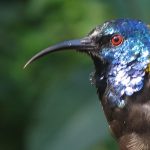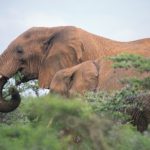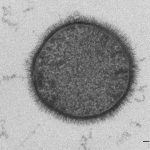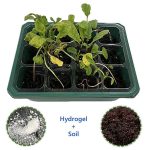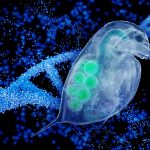Why are tropical birds so colorful? Scientists have found some answers
The birds you see in your backyard can be very different depending on where you live.
If you're far from the Equator, most birds might...
Brain complexity trumps size in mammals, says new study
A recent study led by the University of Bath, published in Nature Communications, reveals that mammals with more complex brains tend to have smaller...
Blue light: A new hope for treating dog ear infections
New research from the University of Nottingham and the University of Birmingham has discovered that blue light can kill antibiotic-resistant bacteria causing ear infections...
Elephants: The unsung heroes sustaining millions of dung beetles in East Africa
Have you ever wondered how many dung beetles live in East Africa?
This question inspired a research project over 20 years ago when Frank Krell,...
Male dragonfish grow larger eyes to find mates in the deep sea, scientists discover
In the dark depths of the ocean, where light is scarce and life is a constant search for survival, the male dragonfish has evolved...
The ultraviolet habitable zone sets a time limit on the formation of life
The field of extrasolar planet studies has grown exponentially in the past twenty years.
Thanks to missions like Kepler, the Transiting Exoplanet Survey Satellite (TESS),...
Bacteria have memory too, shows study
It turns out that bacteria, like humans, have memory!
A recent study led by Dr. Ilana Kolodkin-Gal from the Scojen Institute for Synthetic Biology at...
Permaculture: A sustainable alternative to conventional farming
Researchers from RPTU University of Kaiserslautern-Landau and BOKU University have shown that permaculture can significantly improve biodiversity, soil quality, and carbon storage.
This groundbreaking study...
Smart soil: A new way to water and feed plants efficiently
Researchers at The University of Texas at Austin have developed a new type of soil that can capture water from the air to keep...
Tiny water fleas reveal big secrets about evolution
In a groundbreaking study, scientists from Arizona State University (ASU) and their collaborators have discovered new insights into evolution by studying a tiny creature...

